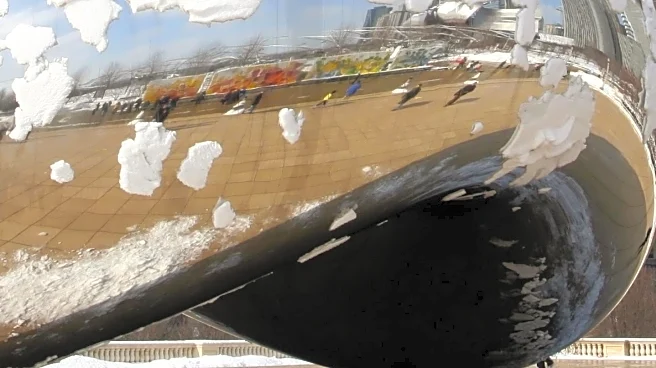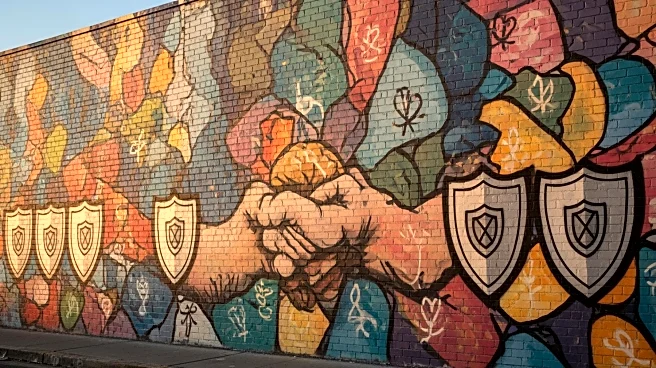What's Happening?
Theaster Gates has transformed the shuttered St. Laurence Catholic Elementary School in the Greater Grand Crossing neighborhood into the Land School, an arts incubator. This initiative is part of Gates' Rebuild Foundation, which focuses on revitalizing abandoned buildings to foster arts, beauty, and culture. The Land School aims to provide a space for artists to flourish, offering a future of care and radical stewardship of time and space. The opening event featured performances and tours of the 40,000-square-foot building, which was acquired by Rebuild in 2014. The project received support from the city's Department of Planning and Development, including a $2.5 million Neighborhood Opportunity Fund grant.
Why It's Important?
The opening of the Land School is significant for the Greater Grand Crossing community as it provides a dedicated space for artistic expression and cultural programming. This development not only preserves a historic building but also strengthens the cultural fabric of the area, offering opportunities for local artists and community engagement. The project reflects a broader trend of investing in neighborhood revitalization and cultural development, which can lead to increased community pride and economic growth. By prioritizing resources for neighborhoods, the initiative challenges the notion that significant cultural projects are confined to downtown areas.
What's Next?
The Land School will continue to serve as a hub for artistic collaboration and community engagement. As a creative partner, D-Composed will utilize the space for programming and events. The Rebuild Foundation plans to expand its ecosystem of artistic sites, further integrating the Land School into its network. Community members are encouraged to participate in activities and provide input on future developments. The success of this project may inspire similar initiatives in other neighborhoods, promoting equitable access to cultural resources.
Beyond the Headlines
The transformation of the St. Laurence school into an arts incubator highlights the importance of community-driven development. Gates' approach emphasizes listening to community needs and desires, fostering a sense of ownership and empowerment among residents. This model challenges traditional development practices and underscores the potential for arts and culture to drive social change. The project also raises questions about the role of artists in urban development and the impact of cultural investments on neighborhood identity.








